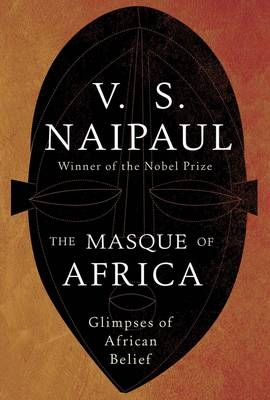
The Masque of Africa
Glimpses of African Belief
Seiten
2010
Picador (Verlag)
978-0-330-52658-6 (ISBN)
Picador (Verlag)
978-0-330-52658-6 (ISBN)
- Titel ist leider vergriffen;
keine Neuauflage - Artikel merken
Encompasses a larger narrative and purpose: to judge the effects of belief (in indigenous animisms, the foreign religions of Christianity and Islam, the cults of leaders and mythical history) upon the progress of civilization.
Like all of V. S. Naipaul's 'travel' books, "The Masque of Africa" encompasses a much larger narrative and purpose: to judge the effects of belief (in indigenous animisms, the foreign religions of Christianity and Islam, the cults of leaders and mythical history) upon the progress of civilization. From V. S. Naipaul: For my travel books I travel on a theme. And the theme of The Masque of Africa is African belief. I begin in Uganda, at the centre of the continent, do Ghana and Nigeria, the Ivory Coast and Gabon, and end at the bottom of the continent, in South Africa. My theme is belief, not political or economical life; and yet at the bottom of the continent the political realities are so overwhelming that they have to be taken into account. Perhaps an unspoken aspect of my inquiry was the possibility of the subversion of old Africa by the ways of the outside world. The theme held until I got to the South, when the clash of the two ways of thinking and believing became far too one-sided. The skyscrapers of Johannesburg didn't rest on sand. The older world of magic felt fragile, but at the same time had an enduring quality. You felt that they would survive any calamity.
I had expected that over the great size of Africa the practices of magic would significantly vary. But they didn't. The diviners everywhere wanted to 'throw the bones' to read the future and the idea of 'energy' remained a constant, to be tapped into by the ritual sacrifice of body parts. In South Africa body parts, mainly of animals, but also of men and women, made a mixture of 'battle medicine'. To witness this, to be given some idea of its power, was to be taken far back to the beginning of things. To reach that beginning was the purpose of my book.
Like all of V. S. Naipaul's 'travel' books, "The Masque of Africa" encompasses a much larger narrative and purpose: to judge the effects of belief (in indigenous animisms, the foreign religions of Christianity and Islam, the cults of leaders and mythical history) upon the progress of civilization. From V. S. Naipaul: For my travel books I travel on a theme. And the theme of The Masque of Africa is African belief. I begin in Uganda, at the centre of the continent, do Ghana and Nigeria, the Ivory Coast and Gabon, and end at the bottom of the continent, in South Africa. My theme is belief, not political or economical life; and yet at the bottom of the continent the political realities are so overwhelming that they have to be taken into account. Perhaps an unspoken aspect of my inquiry was the possibility of the subversion of old Africa by the ways of the outside world. The theme held until I got to the South, when the clash of the two ways of thinking and believing became far too one-sided. The skyscrapers of Johannesburg didn't rest on sand. The older world of magic felt fragile, but at the same time had an enduring quality. You felt that they would survive any calamity.
I had expected that over the great size of Africa the practices of magic would significantly vary. But they didn't. The diviners everywhere wanted to 'throw the bones' to read the future and the idea of 'energy' remained a constant, to be tapped into by the ritual sacrifice of body parts. In South Africa body parts, mainly of animals, but also of men and women, made a mixture of 'battle medicine'. To witness this, to be given some idea of its power, was to be taken far back to the beginning of things. To reach that beginning was the purpose of my book.
V. S. Naipaul was born in Trinidad in 1932. He went to England on a scholarship in 1950. After four years at University College, Oxford, he began to write, and since then has followed no other profession. He has published more than twenty books of fiction and non-fiction, including Half a Life, A House for Mr Biswas, A Bend in the River and most recently The Masque of Africa, and a collection of letters, Between a Father and Son. In 2001 he was awarded the Nobel Prize in Literature.
| Erscheint lt. Verlag | 31.8.2010 |
|---|---|
| Verlagsort | London |
| Sprache | englisch |
| Maße | 153 x 234 mm |
| Gewicht | 442 g |
| Themenwelt | Reisen ► Reiseberichte ► Afrika |
| Geisteswissenschaften ► Religion / Theologie | |
| ISBN-10 | 0-330-52658-8 / 0330526588 |
| ISBN-13 | 978-0-330-52658-6 / 9780330526586 |
| Zustand | Neuware |
| Haben Sie eine Frage zum Produkt? |
Mehr entdecken
aus dem Bereich
aus dem Bereich
als Tierärztin und Artenschützerin im Dschungel
Buch | Softcover (2024)
Malik (Verlag)
20,00 €


